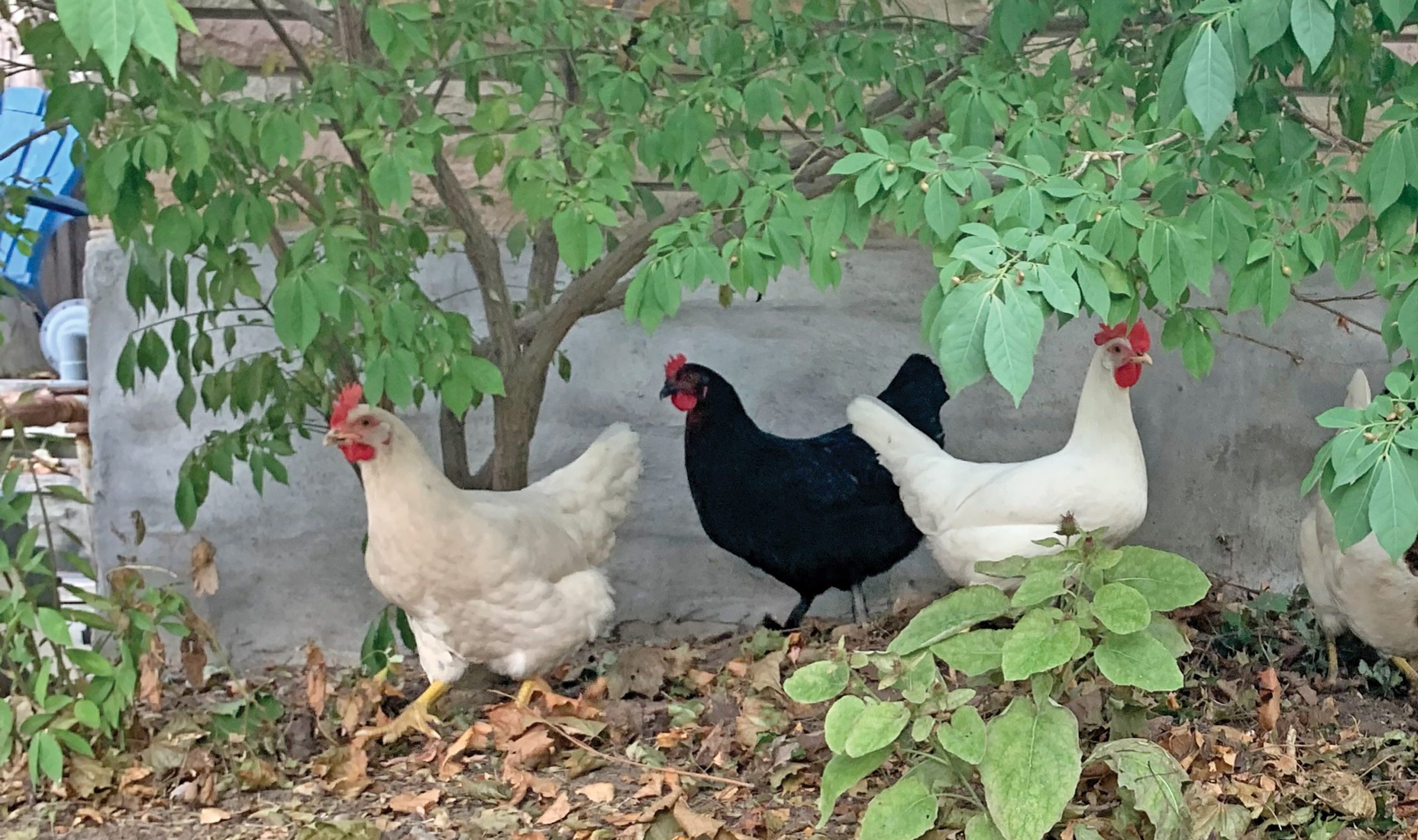BRUCEDALE – No one spoke out against allowing backyard chickens on rural residential lots in Guelph/Eramosa, but several people expressed concerns that their rights to own chickens might be limited during a public meeting to gather feedback on a proposed zoning bylaw amendment to allow domestic poultry.
“My bottom line is, be fair to everybody,” said Chris Kumar, a township resident who spoke at the Oct. 7 meeting.
Kumar’s comments followed a presentation by County of Wellington manager of planning and environment Meagan Ferris on a township-initiated zoning bylaw amendment that would allow people to raise domestic poultry on lots as small as one acre that are zoned agricultural or rural residential.
Ferris explained that under current regulation, chickens and other poultry are considered livestock and people are allowed to keep them in the township only on properties of at least two acres.
“What we’re looking at is exploring smaller lot sizes,” she said.
At the same time, the township is working on a separate domestic poultry bylaw “establishing elements related to the care of the animals in a humane way,” and the aim is to see that bylaw come into force at the same time the zoning bylaw amendment permitting domestic poultry on smaller lots would be passed, Ferris explained.
She went on to provide a summary of the proposed provisions that would be created by the amendment.
It is proposed that a “domestic poultry coop” be defined separately from a “livestock facility” as a structure of no more than 10 square metres for the purpose of housing, keeping and raising domestic poultry as defined in the new domestic poultry bylaw.
The minimum lot size for such a structure would be one acre, and the minimum distance separations for livestock facilities would not apply, but use of the structure would have to meet provisions of the new bylaw.
Whereas livestock facilities are not permitted on reduced agricultural lots used solely for residential purposes, domestic poultry would be allowed.
Ferris then provided some examples of rural residential areas where chickens are not currently allowed but would be under the proposed amendment.
On Ellenville Crescent, a small development of larger estate homes between Ariss and Wellington Road 7, 30 of 32 lots would be allowed to house chickens.
But on Hartfield Drive, which crosses Wellington Road 7 close to where it meets Highway 6, only 11 of the 24 lots would be large enough for chickens.
Meanwhile, in the hamlet of Everton, where there are 89 lots, only 22 would meet the one-acre minimum size requirement.
Kumar asked what the smallest lot size would be in settlement areas Ferris had shown as examples, and while the answer wasn’t clear, he suggested it should dictate the minimum lot size for owning chickens.
“That way it’s fair to everybody,” Kumar said.
Councillor Corey Woods then spoke up to try to explain why the one-acre minimum was being proposed.
“Not everybody gets along,” he said. “As a councillor, people call me and scream at me for a number of things, and one of them is ‘my stupid neighbour has chickens.’”
Woods said he owns chickens, ducks, turkeys and geese at this home on Jones Baseline, and he is in favour of allowing people to keep their own poultry for their own purposes.
But he pointed out “not everybody has that view.”
However, the only members of the general public to speak at the meeting expressed concerns about the township’s power to prevent them from keeping chickens.
Gabriel Fernandes said people have the right to feed themselves and the township should not have the right to limit that capacity by imposing restrictions on how they use their own private property.
“The municipality has no jurisdiction to tell people whether they can or cannot have chickens,” Fernandes said.
But Woods pointed out the municipality is attempting to create a mechanism to allow something that is currently banned.
“We’re saying we would like people to have chickens on less than two acres,” Woods said.
Bill Weima, a resident of Wellington Road 39, said he would like to see less restrictions, noting the City of Guelph allows people to have 10 hens in smaller backyards.
Asked by Ferris to clarify his feedback, Weima said, “I don’t think you should put a limit on lot size.”
He said maybe there should be a limit on the number of birds, but “if they are keeping chickens to feed their family, that should be allowed on any [lot] size.”
Cor VanLeeuwen, who lives in the Conservation Road area just north of Guelph, described how he had recently had his chickens “evicted” due to a neighbour’s complaint.
“I invested about $1,000 to get this coop built so I could have these chickens, and now it just sits there,” he said.
All four members of the public who commented at the meeting spoke in favour of fewer restrictions.
Ferris said township-initiated zoning amendments involve looking at “best practices” in other municipalities to help build a framework regarding what is appropriate.
“What we have seen is that one acre is appropriate and common,” she said.
“If the municipality wants us to look at smaller lot sizes, we can; we just need that direction.”
The feedback from the public and council will be taken into account in preparing a planning recommendation report and draft bylaw amendment for council’s consideration, she said.
There is still opportunity for the public to provide comments in a written format.
Comments should be addressed to the clerk, Amanda Knight, at aknight@get.on.ca and should be submitted before Oct. 30.



